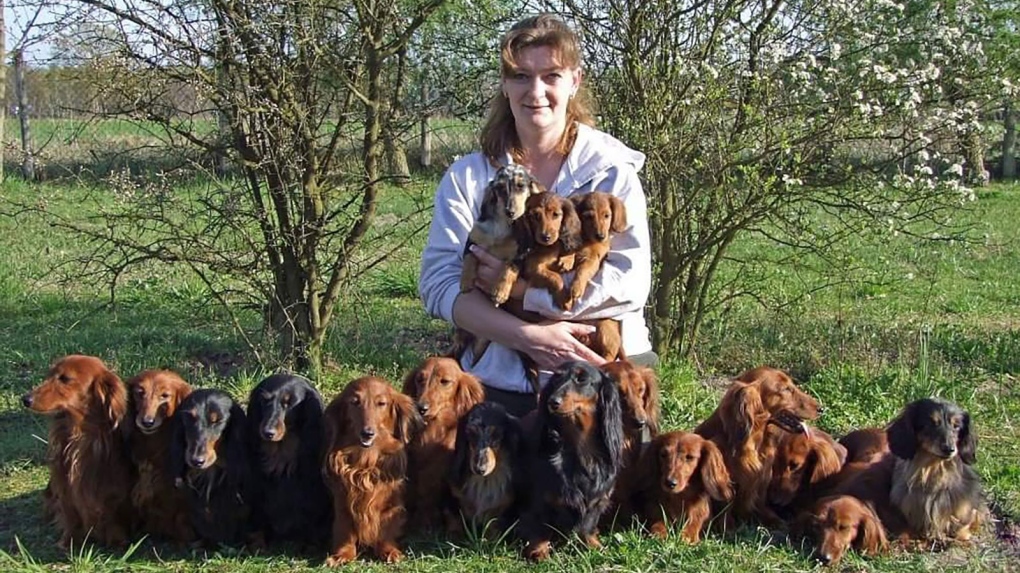Dachshunds under threat as Germany proposes ban on breeding

Germany’s beloved sausage dog, the dachshund, could be under threat in the country, its national kennel club said Wednesday, citing a new draft law that looks to prohibit the breeding of dogs with “skeletal anomalies.”
The draft bill, published in February and currently being considered by the authorities, was introduced as part of the Animal Protection Act, which seeks to strengthen existing laws on so-called “torture breeding,” the German government said.
The document said it could ban the reproduction of breeds prone to particular problems, such as the frequent spinal issues seen in dogs with short legs and a long back.
According to the German Kennel Club (VDH), other national favourites like the German shepherd and schnauzer, and even Snoopy himself, the beagle, could also be affected.
History has seen many famous lovers of the low-slung but feisty dachshund, or “dackel” as it’s known in German.
Napoleon Bonaparte owned several dachshunds, and Germany’s last emperor, Kaiser Wilhelm II, had a headstone erected for his dackel, “Erdmann.”
The painter Pablo Picasso was photographed with his dachshund, Lump, who inspired the artist’s famous line drawing “Le Chien.”
A dachshund even became the first official mascot for the Olympic Games – in Germany, of course – when organizers unveiled Waldi the Dachshund for the 1972 Summer Olympics.
“The sausage dog is part of Germany’s cultural heritage,” Marion Michelet, chairwoman from the Deutscher Teckelklub Berlin-Brandenburg kennel club and owner of a dachshund called Pepper, told CNN Wednesday. “The sausage dog is not inbred just because it is small and has short legs.”
Michelet added that she believes “the new draft law is exaggerated… and is aimed against breeding as a whole.”
The VDH has launched a petition to save “our favourite dogs,” arguing the reform would leave too much room for interpretation in determining what constitutes a genetic defect.
As of Wednesday, the petition had attracted more than 15,000 signatures.
 Germany’s proposed reform is ‘outrageous,’ according to Kerstin Schwartz, a dachshund breeder and owner of 27 dogs from Brandenburg near Berlin. (Courtesy Kerstin Schwartz via CNN Newsource)
Germany’s proposed reform is ‘outrageous,’ according to Kerstin Schwartz, a dachshund breeder and owner of 27 dogs from Brandenburg near Berlin. (Courtesy Kerstin Schwartz via CNN Newsource)
On its website, the VDH said that “many of the proposed changes, such as regulating the online trade in animals or taking action against illegal puppy trade, make sense.”
“However, the animal protection law contains requirements that could mean the end of many healthy dog breeds in Germany,” it added.
Michelet told CNN that the “abnormalities of the skeletal system” could be seen as a ban on breeding for “any significant size deviation from wolves,” which are the ancestor of all modern-day dogs.
Germany’s agriculture ministry denied that the new draft bill would amount to a ban on particular breeds, including the sausage dog.
“We are not seeking to ban the dachshund,” a spokesman of the agricultural ministry told CNN, adding: “What we are aiming at with this reform is a ban on torture breeding.”
The ministry said the new regulation seeks to prohibit breeding practices that inflict long–term suffering on the animals.
“We want to consistently protect animals from pain, suffering and damage,” the ministry said, adding that details of how the new regulations would work are still under discussion.
Kerstin Schwartz, a dachshund breeder and owner of 27 dogs from Brandenburg near Berlin, told CNN that the proposed reform is “outrageous.”
She argued that the kennel club she belongs to has adhered to the same breeding standards since 1888. “For 136 years we have not changed our standard breeding practices.”
“If the breeding ban happens it would have a significant impact” on dog breeders like her, she said, adding: “I hope it won’t come to that.”




